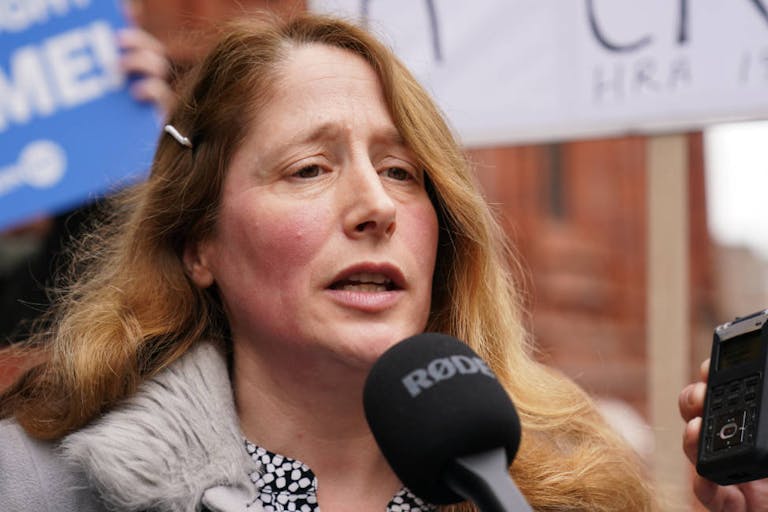
Pro-life activist first to be charged under UK's national abortion zone law
Angeline Tan
·
Facebook and Instagram remove posts advertising abortion pills
Editor’s Note, 2/6/24: Live Action News has been informed that the Lozier study which is referred to in this article has been retracted by SagePub, where the study is available for download. We are currently reviewing this information.
Facebook and Instagram, two of the largest social media platforms on the internet, have begun removing posts advertising abortion pills in the wake of Roe v. Wade‘s end.
According to the Associated Press, after the Supreme Court announced the Dobbs v. Jackson Women’s Health Organization decision, people immediately began posting on both platforms ways for women to obtain abortion pills through the mail. But Facebook and Instagram almost immediately began removing them en masse. Media intelligence firm Zignal Labs told the Guardian there had been 250,000 mentions by Sunday before Meta, the parent organization for both platforms, began removing them.
NBC News affirmed this, saying by Monday, a search of terms like “abortion pills” and “mifepristone” garnered very few results.
READ: Poll: Most Americans want significant abortion restrictions, oppose abortion pills by mail
Article continues below
Dear Reader,
In 2026, Live Action is heading straight where the battle is fiercest: college campuses.
We have a bold initiative to establish 100 Live Action campus chapters within the next year, and your partnership will make it a success!
Your support today will help train and equip young leaders, bring Live Action’s educational content into academic environments, host on-campus events and debates, and empower students to challenge the pro-abortion status quo with truth and compassion.
Invest in pro-life grassroots outreach and cultural formation with your DOUBLED year-end gift!
In response to people complaining about the removals on Twitter, Meta communications director Andy Stone responded that they were being removed due to their restrictions on regulated goods, and not a bias against abortion pills. “Content that attempts to buy, sell, trade, gift, request or donate pharmaceuticals is not allowed,” he wrote. “Content that discusses the affordability and accessibility of prescription medication is allowed. We’ve discovered some instances of incorrect enforcement and are correcting these.”

Though the abortion pill regimen is frequently touted as being safer than Tylenol, it is not true; in reality, the abortion pill reportedly has a four times higher risk of complications than first trimester surgical abortions. Serious side effects have been documented, including uterine hemorrhaging, viral infections, sepsis, and death — along with thousands of adverse events, including deaths.*
Many of the studies claiming the abortion pill regimen is safe have ties to the abortion industry, while numerous studies found a 6% complication rate from chemical abortions. A 2021 population-based longitudinal cohort study also found that emergency room visits following a chemical abortion increased over 500% between 2002 and 2015 within the study population.
Additionally, women have called the experience traumatic and emotionally scarring.
Despite all of this, the push for women to undergo chemical abortions at home, without physician supervision or support, has continued.
Live Action News is pro-life news and commentary from a pro-life perspective.
Contact editor@liveaction.org for questions, corrections, or if you are seeking permission to reprint any Live Action News content.
Guest Articles: To submit a guest article to Live Action News, email editor@liveaction.org with an attached Word document of 800-1000 words. Please also attach any photos relevant to your submission if applicable. If your submission is accepted for publication, you will be notified within three weeks. Guest articles are not compensated (see our Open License Agreement). Thank you for your interest in Live Action News!

Angeline Tan
·
Analysis
Cassy Cooke
·
Analysis
Nancy Flanders
·
International
Angeline Tan
·
Pop Culture
Cassy Cooke
·
International
Cassy Cooke
·
Analysis
Cassy Cooke
·
International
Cassy Cooke
·
Pop Culture
Cassy Cooke
·
Politics
Cassy Cooke
·
Politics
Cassy Cooke
·